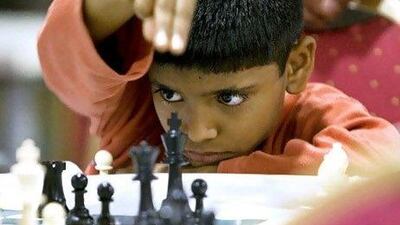Since the dawn of the industrial age, a recurrent fear has been that technological change will spawn mass unemployment. Neoclassical economists predicted that this would not happen, because people would find other jobs, albeit possibly after a long period of painful adjustment. By and large, that prediction has proven to be correct.
Two hundred years of breathtaking innovation since the dawn of the industrial age have produced rising living standards for ordinary people in much of the world, with no sharply rising trend for unemployment. Yes, there have been many problems, notably bouts of staggering inequality and increasingly horrific wars. On balance, however, people live longer, work much fewer hours, and lead healthier lives.
But there is no denying that technological change nowadays has accelerated, potentially leading to deeper and more profound dislocations. In a much-cited 1983 article, the great economist Wassily Leontief worried that the pace of modern technological change is so rapid that many workers, unable to adjust, will simply become obsolete, like horses after the rise of the motor car.
As Asian wages rise, factory managers are already looking for opportunities to replace employees with robots, even in China. As the advent of cheap smartphones fuels a boom in internet access, online purchases will eliminate a vast number of retail jobs. Worldwide, technological change could easily lead to the loss of five to 10 million jobs each year. Fortunately, until now, market economies have proved stunningly flexible in absorbing the impact of these changes.
A peculiar but perhaps instructive example comes from the world of professional chess. Back in the 1970s and 1980s, many feared that players would become obsolete if and when computers could play chess better than humans. Finally, in 1997, the IBM computer Deep Blue defeated the world chess champion Garry Kasparov in a short match. Soon, potential chess sponsors began to balk at paying millions of dollars to host championship matches between humans. Today, the top few players still earn a good living, but less than at the peak. Meanwhile, in real (inflation-adjusted) terms, second-tier players earn much less money from tournaments and exhibitions than in the 1970s.
Nevertheless, far more people make a living as professional chess players today than ever before and many parents see chess as an attractive alternative to mindless videogames. A few countries, such as Armenia and Moldova, have actually legislated the teaching of chess in schools. As a result, thousands of players nowadays earn surprisingly good incomes teaching chess to children, with good chess teachers earning upwards of US$100 (Dh367) to $150 per hour in many cities in the United States. Yesterday's unemployed chess bum can bring in a six-figure income if he or she is willing to take on enough work. In fact, this is one example where technology might actually have contributed to equalising incomes. Second-tier chess players who are good teachers often earn as much as top tournament players - or more.
Of course, the factors governing the market for chess incomes are complex, and I have vastly over-simplified the situation. But the basic point is that the market has a way of transforming jobs and opportunities in ways that no one can predict.
However, technological change is not all upside, and transitions can be painful.
One should be careful in extrapolating the experience of the past two centuries to the next two. For one thing, mankind will be confronted with more complex economic and moral questions as technology accelerates. Still, even as technological change accelerates, nothing suggests a massive upward shift in unemployment over the next few decades.
Some increase in unemployment as a result of more rapid technological change is certainly likely, especially in places like Europe, where numerous rigidities inhibit smooth adjustment. For now, however, the high unemployment of the past several years should be mainly attributed to the financial crisis, and should ultimately retreat toward historical benchmark levels. Humans are not horses.
Kenneth Rogoff, a former chief economist of the IMF, is professor of economics and public policy at Harvard University.
